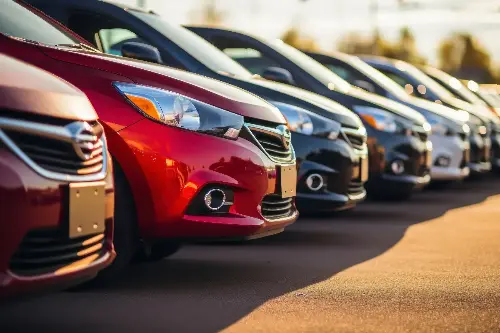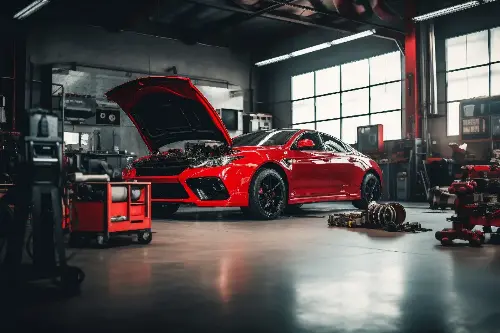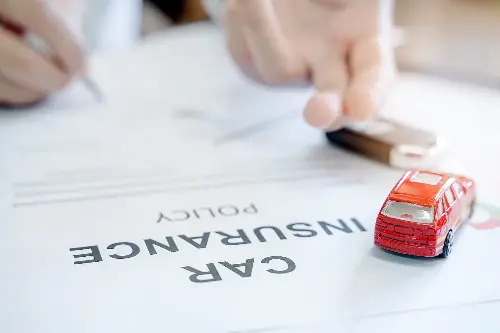If you've ever found yourself pondering whether to breathe new life into your trusty old ride or bid it farewell for a shiny new set of wheels, you're not alone. The dilemma of repairing your existing car or purchasing a new one is a decision faced by many and a process often fraught with emotional and financial considerations.

Understanding Depreciation and Value
The moment you drive a new car off the lot, it begins to depreciate. Typically, cars lose between 15% to 25% of their value each year during the first five years. Beyond this period, the rate of depreciation usually slows down. Assessing the current value of your car versus the cost of repairs is a vital starting point. If your vehicle is near or at the tail end of this depreciation curve, it's worth considering whether the cost of repairs is a viable investment, particularly if it exceeds the present value of the car.
Evaluating Repair Costs
As cars age, they inevitably require more maintenance. When confronted with a costly repair, such as a failed transmission or a blown head gasket, it is crucial to estimate not only the cost of these immediate fixes but also potential future expenses. Reputable mechanics can provide a forecast of what to expect down the road based on their expertise and diagnostics, helping you weigh the costs of maintaining your current car against acquiring a new one.

Reliability and Safety Considerations
Safety advancements and reliability are significant factors influencing this decision. The older a vehicle gets, the less likely it is to have the cutting-edge safety features that newer models boast. While your old car might have been top-of-the-line in safety during its prime, it's important to compare its current safety measures against contemporary standards. Besides, reliability plays a crucial role; a car that often leaves you stranded can have a considerable impact on your life and work.
The Sentimental Value Factor
Sometimes, our cars are more than just vehicles; they're repositories of cherished memories and experiences. Sentimental value may not have a monetary equivalent, but its weight in your decision-making process can be significant. If you're deeply attached to your car, the cost of parting with it emotionally might be higher than the financial cost to repair it.

Fuel Efficiency and Environmental Impact
Fuel efficiency tends to improve with new car models due to advancements in technology and stricter emission regulations. An older vehicle not only costs more to run because of lower fuel economy but also may have a greater environmental impact. Choosing to buy a new car could be a proactive step towards reducing your carbon footprint and saving money on fuel in the long run.
Insurance and Registration Fees
Owning a new car typically means paying higher premiums for insurance. Conversely, older cars often cost less to insure. Assess the difference in insurance costs between your present vehicle and a potential new purchase, remembering to factor in the savings you may have from a reduced rate on an older car. Registration fees can also vary based on the car's age, value, and location, and these should be included in your financial estimations.

Financing and Incentives
In times of promotions or special financing options, a new car purchase might be more appealing. Car manufacturers often offer incentives such as cash-back deals or low-interest financing to entice buyers. These can significantly reduce the cost of a new car purchase. However, remember that new cars often come with higher loan amounts and longer payment terms, so be sure to calculate the total cost of ownership, including interest over the life of the loan.
Lifestyle Changes and Future Needs
Our lives are not static, and neither are our automotive needs. Changes such as an expanding family, a business that requires transporting goods, or a new job with a different commute can greatly influence the type of vehicle that's practical for you. Your current car might not suit your changing lifestyle, making the purchase of a new vehicle not just a want but a necessity.

The Trade-off: New Car Benefits vs Old Car Charm
New cars come with a sense of trust in their reliability, warranties guaranteeing free repairs for certain periods, and the excitement of the latest technology and comforts. At the same time, older cars have their own allure, including a lack of car payments if they're fully paid off, the familiarity and connection a driver feels, and sometimes, a lower cost of ownership even with repairs.
Choosing to repair or replace your vehicle is a complex decision that requires a balanced assessment of practical and emotional factors. It's not merely a matter of economics but also of preferences, future predictions, and personal values. A carefully considered choice, guided by facts and introspection, will lead you to the best path for your automotive journey.
Ultimately, whether the road ahead is best travelled in a familiar old friend or an exciting new acquaintance is a journey only you can navigate. However, armed with these considerations, you can steer yourself towards a choice that makes sense for your wallet, your heart, and your driving pleasure.
